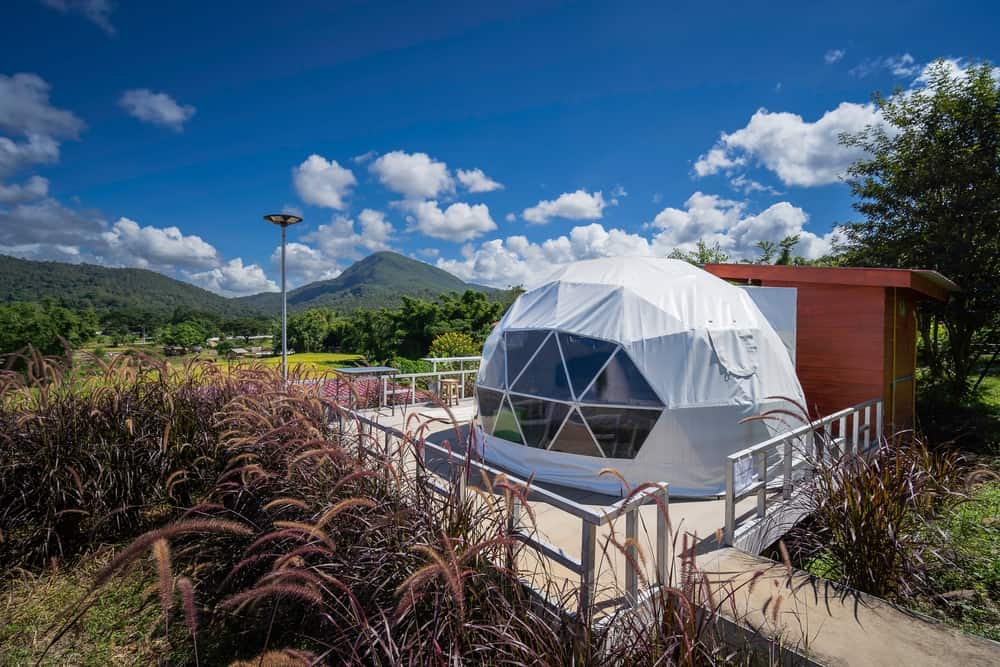A new glamping destination near Poombarai Hills in Kodaikanal, India, is drawing attention for its combination of sustainability, luxury, and immersive natural experiences.
Luxe Chateau, a double-glass dome structure, is the latest addition to Luxeglamp EcoResorts, a company focused on high-end, eco-conscious accommodations.
The dome, situated within forested terrain, offers panoramic views of a valley landscape and is part of a broader trend of experiential stays gaining momentum across India.
Antony Thomas, CEO and Founder of Luxeglamp EcoResorts, said the goal behind the new offering is to deepen the guests’ connection with nature.
“We wanted to elevate our guests’ connection with nature. Our new Glass Glamps offer an all-encompassing experience where guests can sleep under the stars and wake up to one of the most beautiful sunrises in Kodaikanal — all while staying warm and cozy.”
The Luxe Chateau experience includes amenities such as a private deck, temperature-regulating insulated glass, plush interiors, and a floating breakfast in a private infinity pool.
Pricing starts at ₹17,700 per night for themed domes and ₹29,500 for the exclusive glass dome, which includes breakfast and one meal. The domes are inspired by Moroccan, Rodeo, and Celestial themes.
Glamping, short for “glamorous camping,” continues to grow in popularity in India due to its ability to offer outdoor immersion with hotel-level amenities.
Popular regions such as Rajasthan, Kerala, Himachal Pradesh, and Uttarakhand are seeing growth in glamping developments. These include tent stays near deserts, hill retreats, riverside camps, and forest-based accommodations.
For operators in the outdoor hospitality industry, Luxe Chateau exemplifies a rising demand for temporary, low-impact lodging models that prioritize sustainability and design.
The resort avoids permanent construction by using modular, removable domes, reducing its environmental footprint.
Features include solar-powered energy systems, the use of recyclable materials such as tempered glass and aluminum, and a ban on single-use plastics.
“While we have maximised the use of solar panels for energy needs so as to reduce fossil fuel reliance, all our structures are fully removable and temporary. This ensures that we don’t leave a trace of waste in the forest,” Thomas said to The Hindu.
The glamping site also offers guest experiences such as guided horse rides, outdoor dining, and afternoon tea service, leveraging the natural setting and regional culture.
Luxeglamp is currently planning expansion into other parts of South India, including Munnar in Kerala and additional sites in Tamil Nadu. The company is also exploring international expansion in the UAE.
For business owners in the glamping and outdoor hospitality sectors, Luxe Chateau demonstrates a growing consumer preference for unique, eco-sensitive stays that balance comfort with conservation.
The model presents a potential blueprint for others looking to enter or expand in this space, particularly in regions with fragile ecosystems or protected lands.


